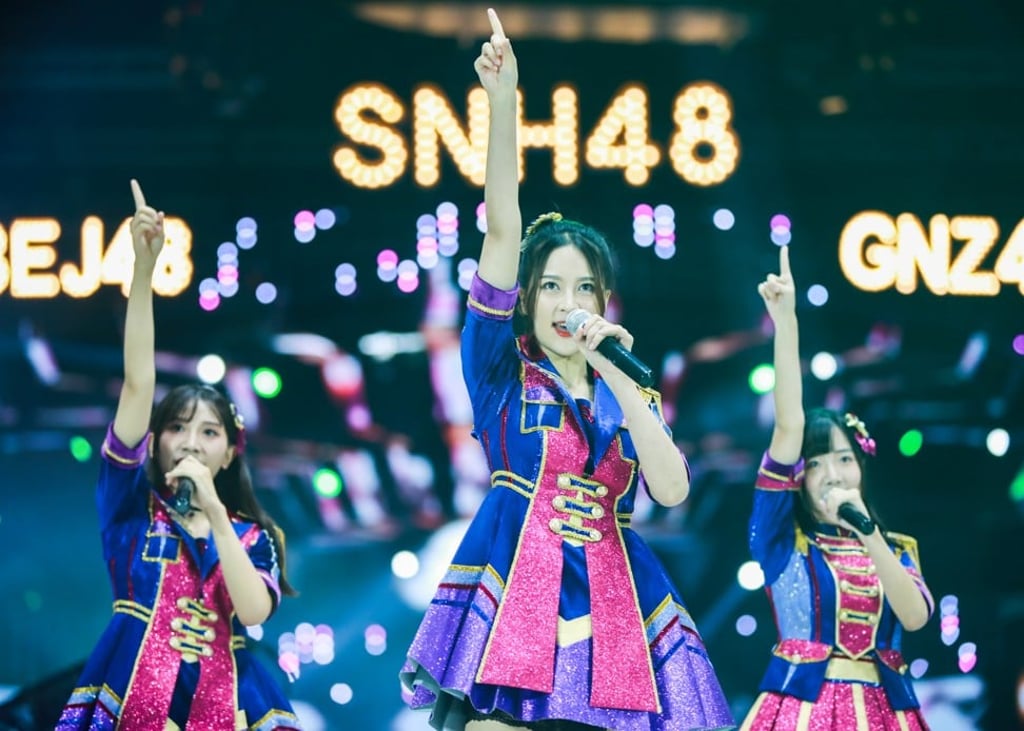Election for Chinese idol group SNH48, spin-off of Japan’s AKB48, draws record numbers as owners eye expansion across the country
Having controversially split from their Japanese founding partners, the Chinese management of SNH48, BEJ48, GNZ48, SHY48 – and soon CKG48 – seem set on creating a lucrative idol universe of epic proportions

SNH48, mainland China’s first “idol group”, and its three sister units held their fourth annual election to decide the top-ranking idols. The process saw nearly 300 girls from across the country perform for baying fans at Shanghai’s Mercedes-Benz Arena as part of a marathon six-hour event on July 29.
Hip hop in China bounces back as new show gives next-gen rappers mainstream appeal, despite censorship
In the end, the top three positions in the massive popularity contest went to the same three girls who finished top of the pile last year. But there was still plenty of melodrama along the way, while the concert confirms the growing confidence of the Star48 Group, which manages all four idol units, since a controversial split from its Japanese founders.
SNH48 started in 2012 as an official spin-off from the Japanese “idols you can meet” group AKB48, who were founded in Tokyo’s Akihabara district with 48 members in 2005. But last year, the Chinese and Japanese management teams became embroiled in a public spat when the Chinese company, buoyed by SNH48’s rampant success, decided to roll out the brand to more cities by creating groups in Beijing (BEJ48) and Guangzhou (GNZ48) without the Japanese side’s permission.
AKB48’s management subsequently removed all advertising for the Shanghai sister outfit from its website and stated that the Chinese management would need to be changed if SNH48 were to maintain their affiliation. The Chinese side ploughed ahead regardless, declaring themselves independent and adding yet another group, Shenyang’s SHY48, at the start of this year.

One year after the fallout, fans at the Shanghai election event are nonplussed by the severed corporate ties. “I’m here for the idols, not for the international connections,” says one young fan who had taken a 24-hour train ride from the northern province of Heilongjiang to be at the election.